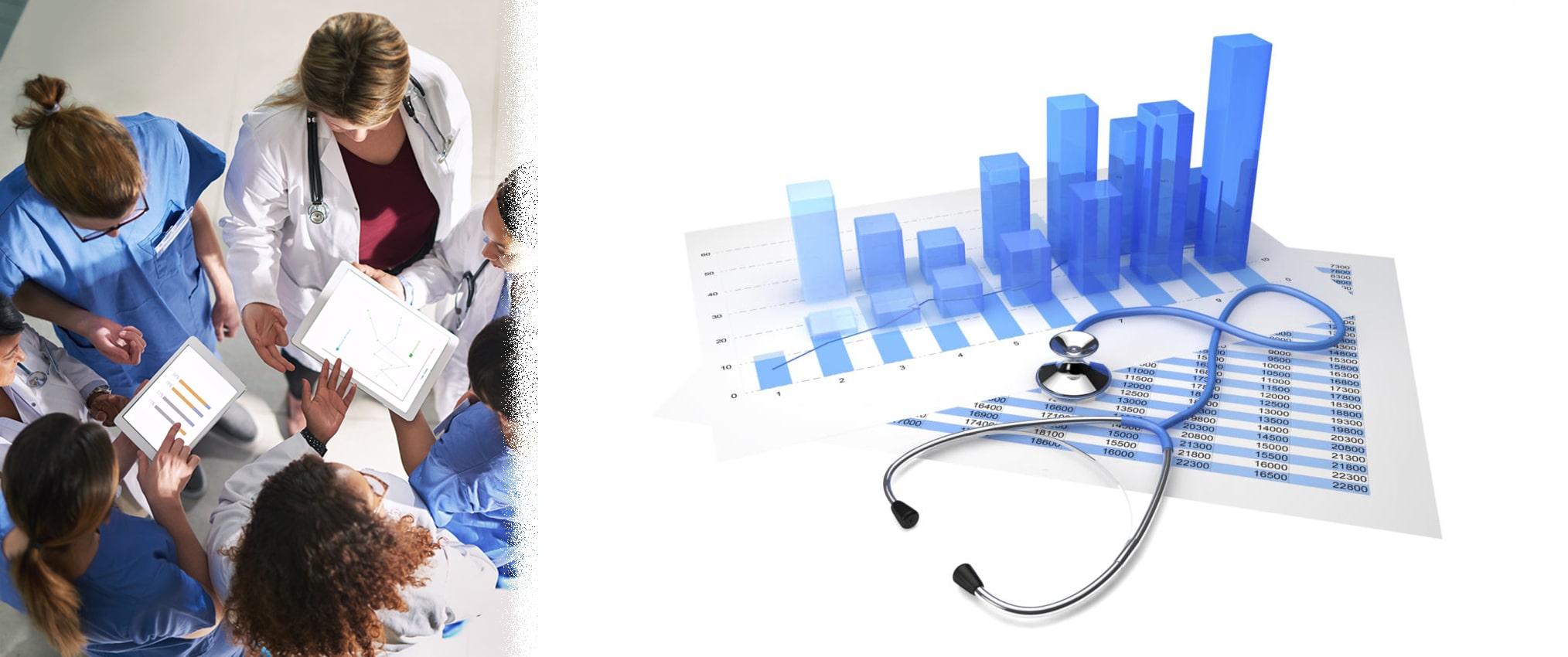
The healthcare analytics market is gearing up for 2021 with trending technologies for a major overhaul in the entire healthcare process. This transformation intends to beat all the challenges of the healthcare industry. The advent of the same reassures in bringing better operational forte to ultimately lead to sterling patient care.
The technology adoption for medical data analytics is invested with billions of dollars guaranteeing colossal changes in the future years. Implementing these digital efficacies surely redefines healthcare predictive analysis that is bound to rewire the core functional areas of healthcare organizations and the entire industry with a customer-centric approach.
The immense possibilities granted by potential healthcare analytics technologies and proven systems along with immersive research will continuously boost the performance and productivity of healthcare organizations. It’s something of a spectacular event where there are minimal or zero security concerns while new fortified offerings emerge in the new era.
The innovative healthcare analytics market tech in the spotlight will bring major advancements to the healthcare industry in the coming years.
Artificial Intelligence (AI) and Machine Learning (ML)
These technologies have offer healthcare analytics algorithms that are capable of identifying various diseases, diagnose patient conditions, tailor or develop the right treatment plans. It has in-depth mechanics that can also monitor health epidemics, boost medical research/clinical trial efficiency, and lessen healthcare operational hassles and demands. It will also provide substantial annual cost-savings in billions through its processing power.
Computer and Machine Vision
A rapidly growing technology that gives “sight” to the computers to perform diagnostics, conduct various scanning or even perform surgery. It can provide accurate intel on the appropriate care that should be given to patients with its healthcare predictive analysis.
The Internet of Medical Things (IoMT)
By integrating with telemedicine, the internet of medical things (IoMT) provides consistent and effective communication across various smart devices, mobile apps, and wearables. These devices monitor and track the medical statuses of patients such as their temperatures, heart rate, blood pressure, glucose level, or other health anomalies. This real-time information will help practitioners to gain meaningful insights to provide the right and effective treatment to patients.
Cloud Computing
Voluminous computing power, massive storage, and instant patient information access is Cloud technology’s prowess, lined with the best security measures. Its high flexibility and cost-effectiveness help healthcare organizations to conduct easy medical data analytics with up-to-date information.
Genomics
AI and ML utilize genomic info of patients to provide them with personalized treatment plans and clinical care. This healthcare process quickly identifies medical conditions with its analysis techniques in gene and gene mutation, so that the medical community can take the right healthcare measures.
Virtual Reality (VR), Augmented Reality (AR), and Mixed Reality (MR)
These technologies are highly beneficial for the medical community as it can simulate virtual training scenarios for surgeries. Apart from that, it can also educate patients about their medical conditions or their suggested treatment plans.
Data Science and Predictive Analytics
This type of medical data analytics methods can provide vital information about patients with chronic medical conditions. It will be in the form of deep actionable insights that trace the patient’s ancestral or family medical histories, surrounding environment, etc. so that diagnoses can be made much faster. All these long-term studies provide predictive analytics for doctors to understand patients with high-risk factors.
Blockchain
Enhanced digital means of patient information access and sharing that assures secure information availability and integrity between various parties. It facilitates interoperability, creation, modification, and distribution of healthcare information without any violation of regulatory compliance. Blockchain provides substantial cost-savings to healthcare organizations with its transaction logs that can capably track down the origin points of any data.
Digital Twins
It is a near real-time replica of a patient’s life-long medical data. Doctors leverage this information to determine the possible successful outcomes of various healthcare processes, help make informed decisions on the right therapy sessions, or in chronic disease management. The healthcare predictive analysis using this technology highly improves the patient experience as they are given effective treatments with a patient-centric approach.
5G
The quality-rich and blistering network speeds needed for healthcare analytics and large data transmission will be provided by this technology, thereby eliminating network quality and speed concerns in remote and under-served healthcare centers. It is the key factor that will be connecting all the above mentioned technologies.
These are the trending technologies that will power the healthcare analytics market of 2021 and are bound to save billions of people and the healthcare systems in the future.
